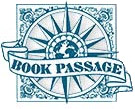- Categories:
Book Passage Community Meeting Garners Positive Feedback From Town
 A community meeting to discuss the creation of policies that would require a review of proposed big box developments in Marin County, a suburb north of San Francisco, garnered positive feedback from some local politicians and residents, according to Bill Petrocelli, co-owner of Book Passage in Corte Madera, California. The event, focusing on how to protect independent businesses from the competition of big box stores, was spurred in part by Barnes & Noble's plans to move to a location only a block from Book Passage.
A community meeting to discuss the creation of policies that would require a review of proposed big box developments in Marin County, a suburb north of San Francisco, garnered positive feedback from some local politicians and residents, according to Bill Petrocelli, co-owner of Book Passage in Corte Madera, California. The event, focusing on how to protect independent businesses from the competition of big box stores, was spurred in part by Barnes & Noble's plans to move to a location only a block from Book Passage.
The Sunday, April 30, meeting at the bookstore kicked off with remarks by ABA COO Oren Teicher. It also featured a representative from the Marin County Board of Legislators and a member of the Corte Madera Town Council -- as well as members of the Corte Madera Citizens Concerned About Independent Bookstores (CCSIB), a grassroots movement launched in support of Book Passage.
Northern California Independent Booksellers Association Executive Director Hut Landon, who was also in attendance, told BTW, "The meeting showed us that there is real citizen interest -- and real consumer interest -- [in supporting locally owned businesses]. This is yet another example of how important it is for bookstores ... to find ways to talk about these issues."
Petrocelli described Teicher's opening address as "a really good talk about the importance of supporting independent businesses." In addition to discussing the uniqueness and character that independent businesses bring to a community, Teicher stressed that their economic value should not be understated.
"At independents like Book Passage, the people who decide what books go on the shelves are your neighbors, not some anonymous people found 3,000 miles away in a Manhattan skyscraper or in a corporate office in the Midwest," Teicher told those in attendance. "Book Passage reflects your town -- who you are, your interests, and what's important to you....
"But what many of us frankly didn't appreciate until more recently is just what an important ... and powerful ... economic engine locally owned, independent businesses have become. In-depth studies have shown that local merchants contribute significantly more economic benefits to the local economy than do national chains." He cited a 2004 study of the Andersonville neighborhood of Chicago, which found that local firms generated 70 percent greater local economic impact than the chains.
An increasing number of owners of locally owned businesses in many communities around the country are banding together in an effort to implement retail size caps, Teicher said, "not only because of the economic reasons, but also because together these unique and distinct businesses create a wonderful retail mosaic, a fun and vibrant alternative to the numbing sameness of rampant chain store proliferation." He added, "By coming out here today, and by making a conscious decision about where you make your purchases, you are taking important steps to have a very real say in what your community will look like."
Petrocelli reported that a "city council member seemed sympathetic" to the idea of requiring a review for any development over a certain square footage (tentatively 18,000 square feet), as did an aide from the County Board of Supervisors office. Both spoke at the meeting and answered questions from residents in attendance. Overall, no one in attendance "argued with the proposition that locally owned businesses are important to the economy," he said. "Something needs to be done to protect the balance of retailing in the community. You have to start somewhere." --David Grogan

